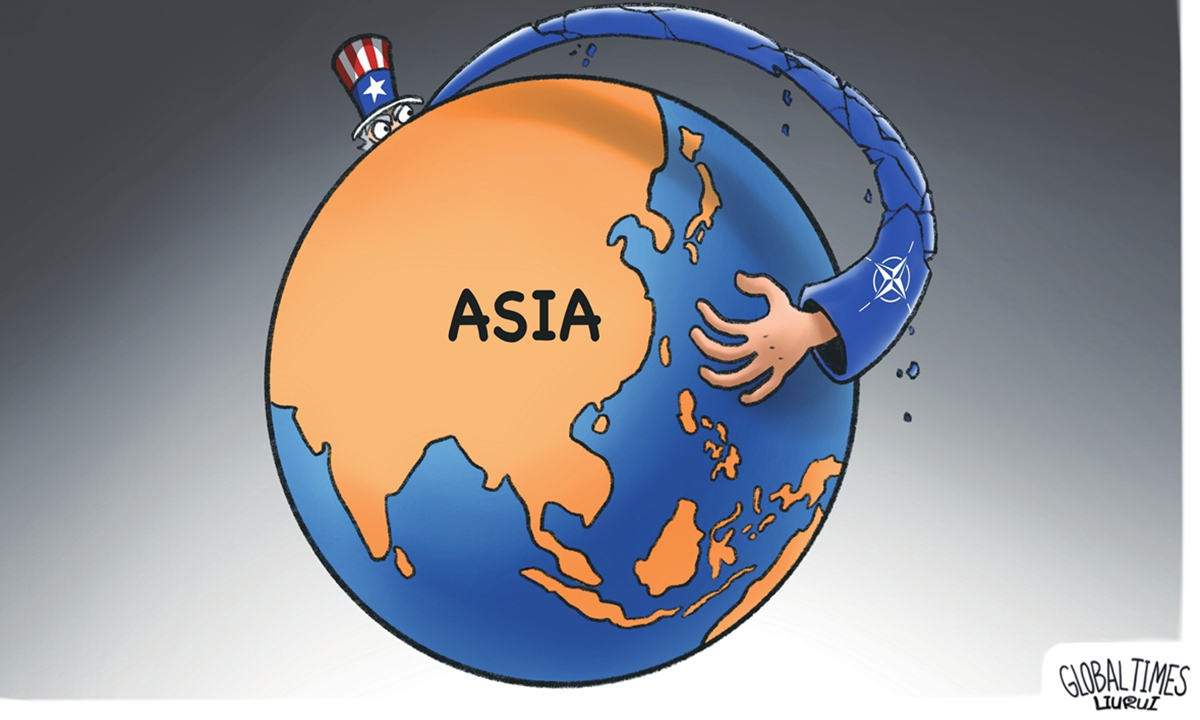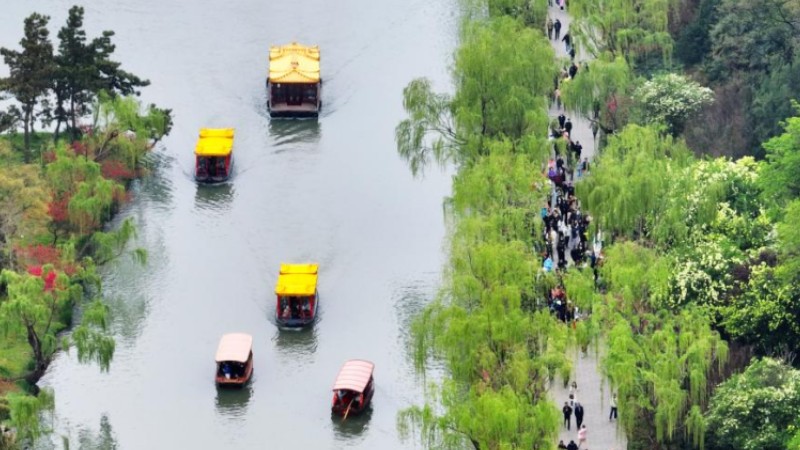Finland's NATO membership deepens concerns over the bloc's expansion into Asia

Illustration: Liu Rui/Global Times
Finland's formal accession to NATO is an essential change in European geopolitics. Still, for China, the concern is not whether the world has one or two less neutral countries, but whether it will become a "refueling station" to strengthen NATO's expansion of its sphere of influence to the east.
Finland, like Sweden, chose neutrality to ensure its security and didn't offend either side. Now they have to lean to NATO to maintain their security, and they must draw a clear line with one end - Russia.
Under Swedish rule in history, Finns began to embrace and eventually integrate into Western cultural traditions increasingly, so today's Finns consider themselves Western Europeans. Even if Finland has chosen the so-called "the third road" as Sweden, both countries have always been essential parts of the Western world and belong to the same camp. In present Europe, no country can form a third camp. There are only two European camps with strict ideological, religious, military, or political distinctions.
At a time when the West has tied its sphere of influence to the security of Europe, the Russia-Ukraine war becomes a life-or-death choice for neutral countries like Finland and Sweden, which are neighbors to Russia. Most importantly, the Western camp has been on the road to expansion for 500 years. They have fought over spheres of influence and pulled the entire world into them, and NATO is the product and instrument of maintaining and fighting over spheres of influence.
Because of the Russia-Ukraine conflict, neutrality is dying. Clarifying and strengthening one's Western identity has been taken as an inevitable choice to defend against Russia.
The choice of Finland and Sweden to join NATO strengthens the West's sphere of influence, and its impact will not be limited to Europe. Recently Europe has once again begun to discuss whether or how Ukraine can be included in NATO.
Our concern is that such strengthening is leading the West to become more involved in Asia through the NATO military bloc, spreading the division caused by "power competition" to Asia like a contagious disease and forcing the Asian countries to choose sides. It should not be forgotten that NATO is a predominantly Western military organization. Although it is ostensibly a defensive organization, it has had the ambition to expand globally from the beginning. After the dissolution of the Warsaw Pact, NATO has been looking for a grip to extend its function of maintaining European order to the rest of the world.
There is no doubt that when NATO's "strategic plague" spreads to Asia, its primary target is China. In the NATO 2022 Strategic Concept document released in June last year, NATO pointed out that Russia is the "biggest and direct threat" and named China for the first time, saying that China poses a "systemic challenge" to NATO. The document also claimed that the situation in the "Indo-Pacific" region has a direct impact on Euro-Atlantic security.
Why do some senior NATO officials frequently warn China not to support Russia militarily and spread unsubstantiated assumptions against China? They seem to be wary and anxious that China will side with Russia militarily, but deep down some of them really want China to do it. That way, they can clearly set China up as an enemy and have a pretext to "enter" Asia.
One danger in Asia is that the sphere-based security structure that emerged from Western expansion could be implanted. Some Asian countries are also considering using NATO to balance China's power.
Since last year, relations between Japan, South Korea, and NATO have been heating up. The leaders of both countries participated in the NATO summit for the first time and joined the NATO-affiliated NATO Cooperative Cyber Defence Centre of Excellence one after another.
The cooperation between Japan, South Korea, and NATO is "moving from the virtual to the real," from traditional defense exchanges such as personnel visits and ship visits to deepening substantive military cooperation such as intelligence sharing, joint exercises, joint R&D of weapons and equipment, and expanding into non-traditional security areas such as cyber security, supply chains, and infrastructure.
Suppose Asia falls into the European security model. In that case, there will be no common security, but only balance by ganging up and building alliances, and the history of Europe shows that that balance will eventually be broken by contention or even war.
Photos
Related Stories
- Finland's accession to NATO poses national security threat to Russia: Kremlin
- Hungary does not want NATO to become anti-China bloc: FM
- Finland becomes NATO member as Russia warns of "counter-measures"
- Protests intensify in Europe amid mounting political, public mistrust against NATO
- Hungarian parliament approves Finland's accession to NATO
- NATO bombing of Yugoslavia killed int'l law: Serbian president
- Finland's president signs national NATO legislation
- Sweden's Parliament endorses country joining NATO
- Demonstrators call for France's withdrawal from NATO in Paris
- Türkiye's Erdogan says he will support Finland's NATO bid
Copyright © 2023 People's Daily Online. All Rights Reserved.









